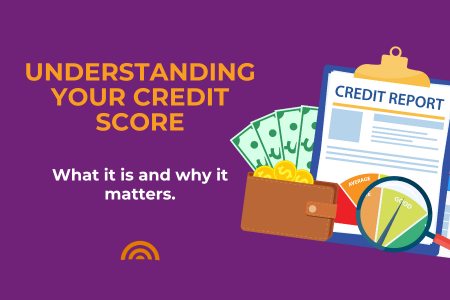Ever wonder why credit scores are suddenly so important? From approving loans to determining your interest rate and even influencing rental applications or job opportunities, your credit score quietly plays a big role in your financial life. Think of it as your financial reputation: the healthier it is, the more doors open. Today, we’re here to give Ontarians the confidence and knowledge to take control of that score.
What Is a Credit Report vs. a Credit Score?
A credit report is like your financial report card! It’s a complete history of how you’ve handled credit, compiled by Equifax and/or TransUnion Canada. Meanwhile, your credit score is the three-digit number that sums up how positively you’ve managed credit. It’s calculated using the information in that report and gives lenders a quick way to assess your creditworthiness.
In Simple Terms, How Is a Credit Score Calculated?
Although the exact formula is proprietary and differs between bureaus and lenders, most follow the FICO model, which is a trusted standard across North America. Here’s how points are generally broken down:
- Payment History (35 %): On-time payments build trust.
- Credit Utilization (Capacity) (30 %): Using less than 30 % of your available credit helps your score.
- Length of Credit History (15 %): A longer record of good habits boosts your score.
- New Credit (10 %): Opening a lot of accounts at once can ding your score.
- Credit Mix (10 %): Managing a variety of credit types (like a credit card and a loan) helps too.
Why Your Credit Score Matters
A good score can mean lower interest rates on loans, better offers on credit cards, and smoother sailing when applying for a mortgage, but it doesn’t stop there! Landlords, insurers, and even some employers may check your score to evaluate your trustworthiness. A strong score gives you more room to negotiate better terms and pay less in interest.
How to Check Your Credit Report and Score in Canada
- Your Free Report: You can request a free copy of your credit report from Equifax or TransUnion by mail, online, or by phone.
- Score Access: Many providers offer your actual credit score for a small fee (usually around $15–$25).
- Best Practice: Check your report at least once a year and especially before making major financial decisions.
How to Improve or Maintain Your Credit Score
Here are smart, practical habits to keep your score healthy:
- Use Less Than 30 % of Your Credit: Lower utilization = better score.
- Pay Bills on Time, Every Time: Even a few days late can hurt your score. Set up autopay or reminders.
- Apply for New Credit Sparingly: Hard inquiries from multiple applications can temporarily drag down your score.
- Keep Older Accounts Open: Unless there’s a compelling reason to close them, older accounts help your score by increasing your credit history.
Watch for Errors and Identity Theft
Your credit report may contain mistakes such as incorrect late payments, outdated info, or even signs of fraud. Make it a habit to review your report carefully:
- Confirm your personal details are accurate.
- Look for accounts you didn’t open or payment mistakes.
- Check for unauthorized inquiries or activity.
If you spot any issues, dispute them with the credit bureau or request a fraud alert.
How Long Does Information Stay on Your Report?
Here’s a handy breakdown of how long different info sticks around:
- On-time accounts stay active indefinitely, and closed positive accounts may remain up to 10 years.
- Late payments, collections, or bankruptcies typically stay on your file for 7 to 10 years.
- Fraud alerts usually last a few months, long enough to give you protection during an investigation.
Summary & Action Steps
Let’s recap:
- Credit report = your history.
- Credit score = your financial reputation.
- Key drivers = payment history, credit use, account length, mix of credit, and recent credit activity.
- Good habits = slow but steady improvement.
- You have the power to check it, improve it, and keep it accurate.
Here’s how to take action today:
- Request your free credit report.
- Set up autopay or reminders for all your bills.
- Keep an eye on your credit utilization.
- Review your report regularly for errors or suspicious activity.
- Contact a Luminus team member for personalized credit support.
At Luminus Financial, we’re committed to helping members build strong financial foundations. Whether you need a one-on-one credit consultation, support selecting low-interest credit options, or tools to monitor your credit health, we’ve got you covered.



